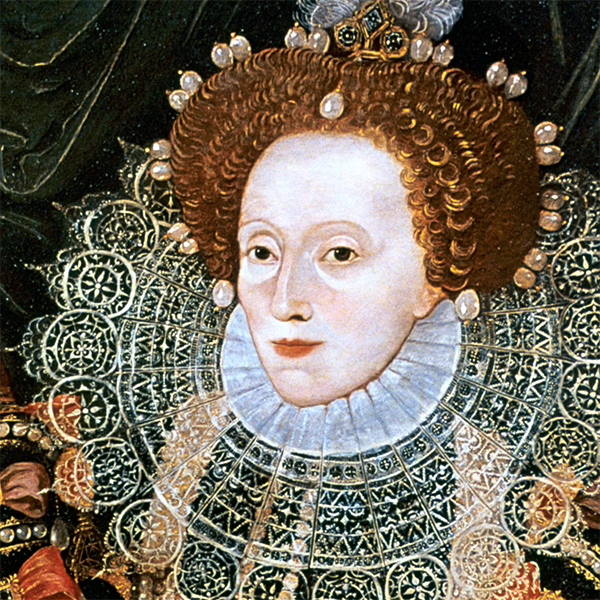
The name Elizabeth carries with it a rich tapestry of history, faith, and cultural significance that spans centuries and continents. Rooted in biblical tradition and flourishing in royal courts and literary works, Elizabeth has become a symbol of:
- strength,
- resilience,
- faith.
This article delves into the multifaceted legacy of Elizabeth, from her biblical origins to her impact on contemporary society, examining how this name has influenced and inspired generations.
Exploring the Biblical Roots of the Name Elizabeth
The name Elizabeth is derived from the Hebrew name Elisheva, meaning “God is my oath.” In the Bible, Elizabeth is prominently featured in the Gospel of Luke as the mother of John the Baptist and the wife of Zechariah. Her story is one of divine intervention, as she was considered barren and well beyond childbearing age when she conceived John, following an angelic announcement. This narrative has made Elizabeth a figure of hope and faith for many.
Elizabeth’s biblical significance extends beyond her personal story. She is often seen as a parallel to the Virgin Mary, highlighting themes of miraculous conception and divine favor. The relationship shared between Elizabeth and Mary, who visited her during their pregnancies, underscores the importance of women supporting one another in faith and motherhood. This bond has resonated with many, establishing Elizabeth as a figure of solidarity.

In addition to her biblical role, Elizabeth’s name has evolved into a symbol of fidelity and devotion, resonating with religious communities around the world. Many women named Elizabeth have taken on the qualities attributed to the biblical figure, embodying faithfulness, strength, and maternal wisdom. This connection has contributed to the name’s enduring popularity across diverse cultures.
The biblical Elizabeth has also been a subject of interpretation in various religious texts and theological discussions. Scholars and theologians continue to explore her significance in the context of salvation history and women’s roles in the church, ensuring her story remains relevant in contemporary discussions of faith and spirituality. Her character serves as a reminder of the miraculous and the profound ways in which God works in the lives of ordinary individuals.
Overall, the biblical roots of the name Elizabeth lay a foundational framework for understanding its enduring legacy. These ancient narratives have not only shaped the perception of Elizabeth as a name but have also inspired countless individuals to embody the virtues associated with her story. As the name transcends its biblical origins, it continues to resonate in the lives of women and men alike.
The biblical Elizabeth’s legacy is a reminder of the complexities and challenges faced by women in both historical and modern contexts. As society continues to grapple with issues of gender and faith, the themes embodied in Elizabeth’s story offer hope and inspiration for future generations.
Elizabeth: A Symbol of Faith Across Generations
Throughout history, the name Elizabeth has become synonymous with faith and perseverance. Many women who bear this name have played significant roles in their communities, often as pillars of strength and moral guidance. This association with faith is particularly evident in Christian communities, where Elizabeth is revered not only as a biblical figure but also as a model of unwavering devotion to God.

In various cultures, the name Elizabeth has been associated with festivals, celebrations, and religious ceremonies, reinforcing its connection to faith-based traditions. Many parents choose the name for their daughters in hopes that they, too, will embody the traits of faith and resilience that Elizabeth represents. This generational transmission of the name ensures that its associations with faith continue to thrive.
In times of crisis, individuals named Elizabeth have often emerged as leaders, providing spiritual and emotional support to those around them. This phenomenon can be seen throughout history, where women named Elizabeth have taken on significant roles in social movements, religious reformations, and community organizing. Their contributions highlight the enduring nature of faith as a catalyst for change and empowerment.
The character of Elizabeth in literature and art has further cemented her role as a symbol of faith. Poets, playwrights, and artists have drawn inspiration from her biblical narrative, portraying her as a figure of strength and spiritual depth. This artistic representation has allowed the name to transcend its historical roots, becoming a universal symbol of faith that resonates with people across time and space.
Many contemporary faith leaders and activists bear the name Elizabeth, reflecting its ongoing relevance in discussions of spirituality and social justice. These leaders often draw upon the strength and resilience associated with their namesake, using their platform to promote values of compassion, justice, and community engagement. The legacy of Elizabeth as a symbol of faith continues to evolve and adapt to the changing needs of society.
Ultimately, the name Elizabeth is not merely a label but a testament to the enduring power of faith across generations. As individuals continue to find inspiration in the biblical Elizabeth, the name will likely remain a beacon of hope and resilience for those who carry it.

The Influence of Queen Elizabeth on Modern Society
Queen Elizabeth II, the most recent and notable bearer of the name, greatly influenced modern society throughout her reign, which lasted from 1952 until her passing in 2022. Her life and leadership style have become a point of reference for discussions on monarchy, leadership, and national identity. As the longest-reigning monarch in British history, Queen Elizabeth II embodied stability and continuity during a period of significant societal change.
Her role as a figurehead of the British monarchy extended beyond mere ceremonial duties; she became a symbol of unity and resilience for the British people. During times of national crisis, such as World War II and various economic downturns, her steadfast presence provided a sense of reassurance and hope. The Queen’s ability to adapt to changing times while maintaining traditional values established her as a modern monarch who respected history but embraced progress.
Moreover, Queen Elizabeth II’s influence transcended national boundaries. She maintained relationships with world leaders and was a key player in international diplomacy, representing the United Kingdom on the global stage. Her visits to numerous countries and her participation in multilateral organizations highlighted the importance of diplomacy and cooperation in an increasingly interconnected world.
The Queen’s commitment to public service and charitable work also left a lasting legacy. Through her patronage of various organizations and initiatives, she championed causes such as education, healthcare, and environmental sustainability, encouraging others to contribute to their communities. This spirit of giving and service has inspired generations to engage in philanthropy and community work.
In popular culture, Queen Elizabeth II has been a subject of fascination, depicted in books, films, and television shows. These portrayals have shaped public perceptions of the monarchy and have sparked discussions about the relevance of royal traditions in contemporary society. The ongoing interest in her life and reign underscores the impact she had on the collective consciousness of both her nation and the world.
As society reflects on her legacy, the influence of Queen Elizabeth II continues to be felt today. Her life serves as a reminder of the enduring power of leadership, public service, and the importance of adapting to change while honoring tradition.
Notable Figures Named Elizabeth Throughout History
The name Elizabeth has been borne by many remarkable women throughout history, each contributing to various fields and movements. One of the most distinguished figures is Elizabeth I of England, whose reign from 1558 to 1603 marked the Elizabethan Era. Known for her intelligence and political acumen, she played a pivotal role in establishing Protestantism in England and presiding over a flourishing of arts and culture, including the works of Shakespeare.
Another notable Elizabeth is Elizabeth Cady Stanton, a prominent American suffragist and social activist in the 19th century. As a leading figure in the women’s rights movement, Stanton’s advocacy for gender equality and her role in organizing the Seneca Falls Convention in 1848 were instrumental in securing women’s right to vote. Her work laid the foundation for future generations of activists.
In the realm of science, Elizabeth Blackwell stands out as the first woman to receive a medical degree in the United States. Her determination to pursue a career in medicine at a time when women were largely excluded from the field paved the way for future female doctors. Blackwell’s legacy continues to inspire women in medicine and other traditionally male-dominated professions.
Elizabeth Fry, a 19th-century Quaker reformer, is another notable figure associated with the name. She dedicated her life to prison reform, advocating for humane treatment and better conditions for incarcerated women and children. Fry’s efforts not only changed the prison system in England but also influenced movements for social reform globally.
In literature, Elizabeth Barrett Browning made her mark as a celebrated Victorian poet. Her work, particularly “Sonnets from the Portuguese,” explores themes of love, passion, and the struggles of women in society. Browning’s contributions to poetry and her ability to express profound emotion have earned her a place among the literary giants of her time.
The name Elizabeth has thus been carried by women who have shaped history in myriad ways. From monarchs and activists to scientists and artists, these figures exemplify the diverse contributions that individuals named Elizabeth have made to society, enriching the legacy of the name and its significance across different contexts.
Cultural Representations of Elizabeth in Literature
The name Elizabeth has frequently appeared in literature, often symbolizing complex themes related to identity, love, and social justice. One of the most famous literary representations is in Jane Austen’s “Pride and Prejudice,” where Elizabeth Bennet serves as the intelligent and headstrong protagonist. Her character challenges the societal norms of her time, embodying the fight for personal autonomy and the pursuit of true love.
In Shakespeare’s plays, various characters named Elizabeth have appeared, often representing ideals of loyalty and virtue. The recurring use of this name in such influential works reflects the qualities associated with Elizabeth as a character – strength, wisdom, and resilience. These literary depictions have helped to shape the cultural understanding of what it means to be named Elizabeth.
The use of Elizabeth in poetry is also noteworthy, with poets such as Elizabeth Barrett Browning and Elizabeth Bishop crafting works that explore themes of longing, identity, and personal struggle. Browning’s passionate verses and Bishop’s intricate imagery reveal the depth and complexity often associated with women named Elizabeth. Their contributions to poetry have left an indelible mark on the literary canon.
In modern literature, Elizabeth continues to be a popular name for characters who represent empowerment and independence.
